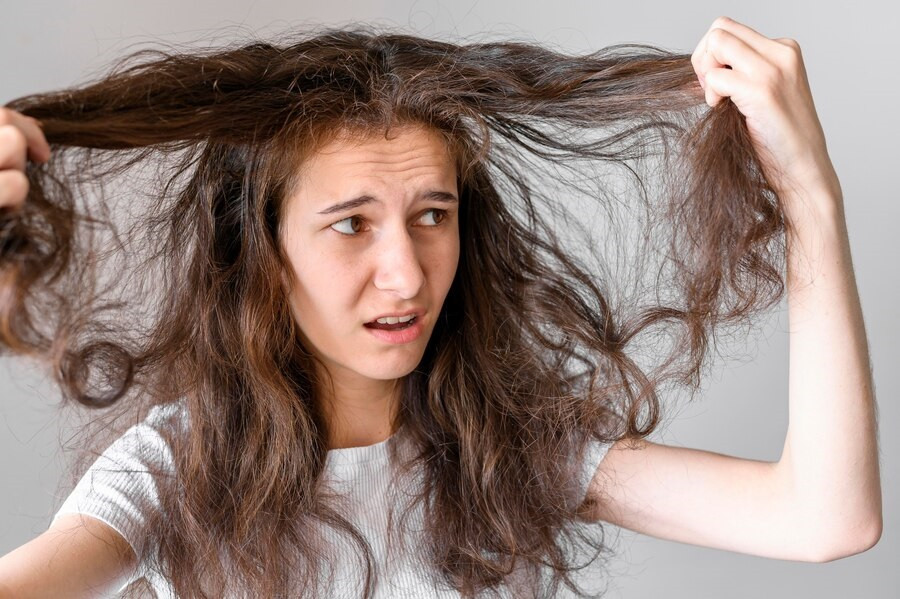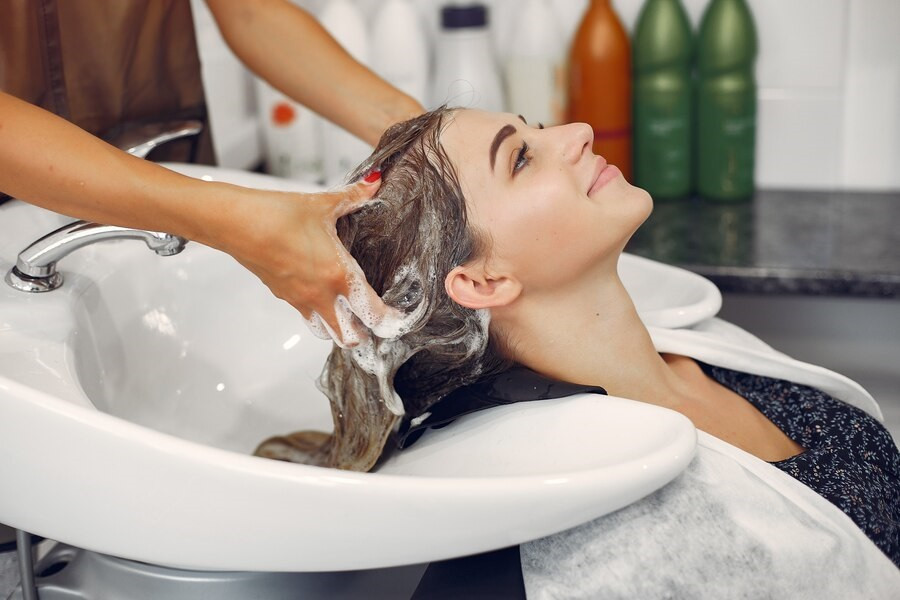Kulit kepala menghasilkan minyak alami yang berfungsi menjaga kelembapan dan kelembutan rambut. Namun jika produksi minyak berlebihan, hal ini dapat menyebabkan rambut tampak berminyak dan lepek yang mengganggu penampilan.
Penyebab Rambut Berminyak
Rambut yang sehat menghasilkan sebum atau minyak untuk menghidrasi kulit kepala dan melindungi rambut. Jumlah minyak yang diproduksi bergantung pada berbagai faktor seperti jenis rambut, kebiasaan menata rambut dan gaya hidup. Ketika produksi minyak berlebihan, minyak dapat membuat rambut terlihat lepek, licin dan kotor.
Peningkatan produksi minyak pada rambut merupakan hal yang normal, namun hal ini juga dapat disebabkam oleh beberapa faktor, di antaranya:
- Perubahan hormon: Perubahan hormon saat menstruasi dapat meningkatkan produksi minyak dan jerawat, termasuk minyak pada rambut.
- Frekuensi mencuci rambut dan produk yang digunakan: Mencuci rambut terlalu sering atau terlalu jarang juga dapat meningkatkan produksi minyak, begitu juga produk perawatan rambut yang Anda gunakan seperti sampo, kondisioner, masker rambut, dan lain-lain.
- Jenis rambut: Rambut lurus umumnya terlihat rentan berminyak karena tidak memiliki tekstur sehingga minyak pada rambut akan meluncur lurus di sepanjang helai rambut.
- Masalah kulit: Dermatitis seboroik pada kulit kepala dapat memengaruhi produksi kelenjar minyak pada rambut yang menyebabkan rambut berminyak dan kulit kepala pecah-pecah serta kemerahan.
- Infeksi jamur: Infeksi jamur pada kulit kepala ditandai dengan kulit kepala yang lebih lembap dan berminyak.
Baca Juga: Manfaat Yogurt untuk Kecantikan Wajah dan Rambut
Cara Mengatasi Rambut Berminyak
Umumnya rambut berminyak bukanlah kondisi berbahaya, akan tetapi hal ini dapat membuat Anda tidak percaya diri. Rambut berminyak terkadang juga disertai rasa gatal yang membuat Anda tidak nyaman.
Beberapa cara yang bisa Anda coba untuk mengatasi rambut berminyak di antaranya:
Perbaiki frekuensi keramas
Jika rambut Anda berminyak karena terlalu sering keramas, sebaiknya kurangi frekuensi keramas. Keramas dapat menghilangkan minyak alami rambut dan menghasilkan lebih banyak minyak untuk rehidrasi rambut. Begitu pun sebaliknya, jika rambut berminyak disebabkan oleh terlalu jarang keramas sebaiknya tingkatkan frekuensi keramas Anda menjadi 3-4 kali seminggu.
Saat keramas, gunakan sampo yang sesuai dengan jenis kulit kepala dan rambut, juga bilas dengan bersih. Sisa sampo yang tidak dibilas dengan bersih dapat menyebabkan kulit kepala berminyak dan merusak rambut.
Baca Juga: Cara Merawat Rambut yang Rusak Akibat Bleaching
Eksfoliasi kulit kepala
Gunakan scrub khusus kulit kepala untuk menyingkirkan tumpukan minyak pada kulit kepala. Lakukan eksfoliasi sekali seminggu secara rutin atau sesuai kebutuhan.
Gunakan dry shampoo
Untuk solusi instan, Anda bisa menggunakan dry shampoo. Dry shampoo dapat menyerap minyak dan lemak tanpa perlu keramas. Produk ini bisa Anda gunakan ketika rambut tampak lepek namun Anda tidak sempat keramas. Karena sampo kering dapat menyebabkan penumpukan dan iritasi pada kulit kepala, sebaiknya hindari menggunakannya selama beberapa hari berturut-turut dan cuci rambut Anda setelah menggunakan dry shampoo.
Gunakan kondisioner
Penggunaan kondisioner juga dapat membantu mengontrol produksi minyak pada kulit kepala. Anda bisa menggunakan kondisioner yang banyak beredar di pasaran atau menggunakan bahan alami seperti minyak kelapa.
Selain perawatan rumahan, dokter juga dapat merekomendasikan pengobatan untuk kasus rambut berminyak yang disebabkan oleh perubahan hormon atau dermatitis seboroik. Jika rambut berminyak sangat mengganggu aktivitas Anda sebaiknya periksakan ke dokter atau manfaatkan fitur konsultasi pada aplikasi Ai Care.
Mau tahu tips dan trik kesehatan, pertolongan pertama, dan home remedies lainnya? Cek di sini, ya!
- dr Nadia Opmalina
Valeii, K. (2024). Oily Hair: What Causes Wet and Shiny Symptoms?. Available from: https://www.verywellhealth.com/oily-hair-8550323
Ferreira. M. (2023). 25 Ways to Fix Oily Hair. Available from: https://www.healthline.com/health/oily-hair-remedy#
Watson. K. (2019). Why Is My Hair So Oily?. Available from: https://www.healthline.com/health/beauty-skin-care/why-is-my-hair-so-oily
Begum, J. (2022). Why Is My Hair So Oily? How to Manage Oily Hair. Available from: https://www.webmd.com/beauty/why-is-my-hair-so-oily-how-to-manage-oily-hair












